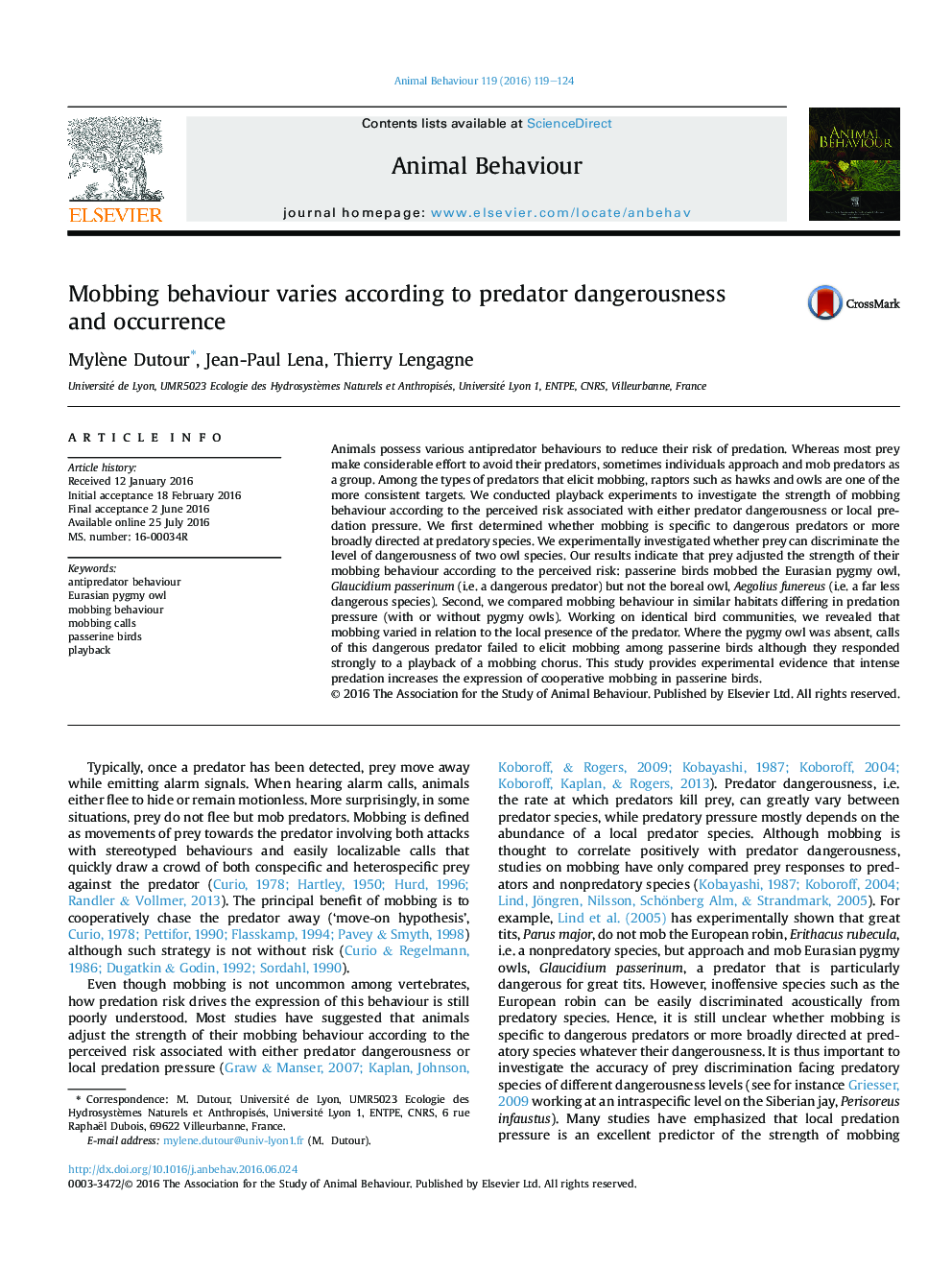| کد مقاله | کد نشریه | سال انتشار | مقاله انگلیسی | نسخه تمام متن |
|---|---|---|---|---|
| 2416268 | 1552209 | 2016 | 6 صفحه PDF | دانلود رایگان |

• Birds sometimes respond to predators by mobbing instead of fleeing.
• We tested the effect of predation risk on mobbing intensity using playback stimuli.
• We showed that mobbing intensity varied with predator dangerousness.
• Mobbing intensity also varied according to the local occurrence of the predator.
Animals possess various antipredator behaviours to reduce their risk of predation. Whereas most prey make considerable effort to avoid their predators, sometimes individuals approach and mob predators as a group. Among the types of predators that elicit mobbing, raptors such as hawks and owls are one of the more consistent targets. We conducted playback experiments to investigate the strength of mobbing behaviour according to the perceived risk associated with either predator dangerousness or local predation pressure. We first determined whether mobbing is specific to dangerous predators or more broadly directed at predatory species. We experimentally investigated whether prey can discriminate the level of dangerousness of two owl species. Our results indicate that prey adjusted the strength of their mobbing behaviour according to the perceived risk: passerine birds mobbed the Eurasian pygmy owl, Glaucidium passerinum (i.e. a dangerous predator) but not the boreal owl, Aegolius funereus (i.e. a far less dangerous species). Second, we compared mobbing behaviour in similar habitats differing in predation pressure (with or without pygmy owls). Working on identical bird communities, we revealed that mobbing varied in relation to the local presence of the predator. Where the pygmy owl was absent, calls of this dangerous predator failed to elicit mobbing among passerine birds although they responded strongly to a playback of a mobbing chorus. This study provides experimental evidence that intense predation increases the expression of cooperative mobbing in passerine birds.
Journal: Animal Behaviour - Volume 119, September 2016, Pages 119–124